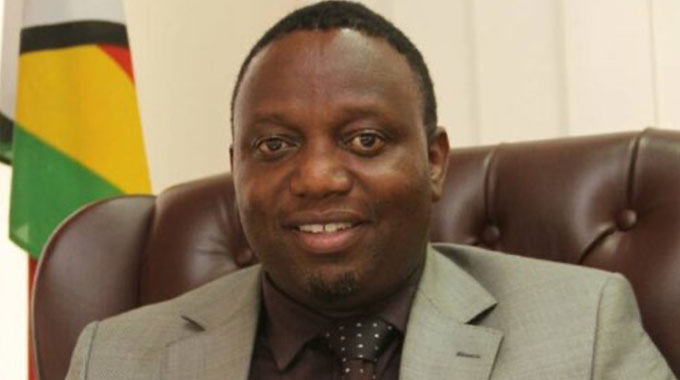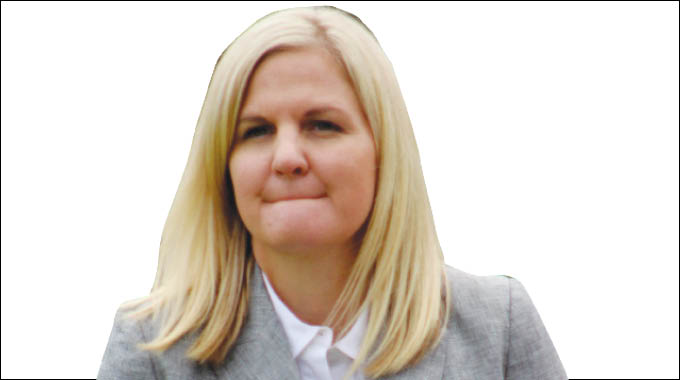Establishing a National Language Council for Zimbabwe

Professor Wiseman Magwa
Zimbabwe is a sovereign republic which made history on 22 May 2013 when the then President Robert Mugabe, appended his signature to a people-driven new Constitution which is now the fundamental law of the country. Home Affairs and Cultural Heritage Minister Kazembe Kazembe has said he is learning Ndebele and being conversant in the language is his priority at the moment.
He said he wants to speak in Ndebele whenever he is in Matabeleland region.
“I started Ndebele lessons out of the realisation that I need to be conversant in the language as and when I meet my fellow brothers and sisters who speak the language.
“I was tired of having someone translate for me when my fellow brothers and sisters speak in Ndebele. Remember we are all Zimbabweans. There are 16 official languages and therefore the need to understand the other languages which are not one’s mother language. We are a united people and we cement that when we all speak in other languages since we are all equal.”
He said the development of the country is possible when people are united and can speak and understand each other.
Minister Kazembe said the dedication and commitment towards the attainment of the objectives of Vision 2030 to contribute towards the development of a prosperous, knowledge and technology-driven upper middle-income society also lies on peace and tranquillity enjoyed by Zimbabweans who are able to communicate and understand each other.
The Constitution officially recognises 16 languages spoken in the country namely; Shona, Ndebele, Kalanga, Sotho, Shangani, Nambya, Tonga, Ndau, ChiBarwe, Koisan, Chewa, Venda, Xhosa, Tswana, Sign Language and English. The official recognition of these languages should be seen as a core component of peace and nation building strategy hence the need to establish a National Language Council to regulate and promote local languages and cultures.
A National Language Council will provide an effective communication system that links the Government to the people so as to enable appropriate flow of information between the two sides.
Language therefore plays a very significant role in ensuring such flow of information. It is important to note that the French, Spaniards, Portuguese, British, Americans, Danes, Poles, Koreans, Germans, Chinese, Indonesians, and Japanese to mention a few countries in the world, communicate with the citizenry in their own languages in issues such as education, information and governance.
Therefore, Zimbabwe can only gain its dignity, cultural identity and a place among the league of developed nations by establishing a National Language Council that will enhance accessibility of information to more people through use of indigenous languages. The council in my view should play a leading role in researching and formulating language policies that will give Zimbabwe a distinct identity in the continent and in the world. The use of indigenous languages in official matters and day-to-day business will certainly make Zimbabweans feel proud of their nationhood and more importantly, enhance their participation in social- economic development activities of the country.
It should be noted that Zimbabwe hosted the Intergovernmental Conference on Language Policies in Africa (ICLPA) from 17-21 March 1997 and 51 out of 54 African member states attended. The conference was unique in that it brought together Government Education Ministers and language specialists to one table. Because of this combination of official delegates at such a high level of representation from almost all the countries on the continent, this conference had far greater impact than any of the previous ones on language issues in Africa.
The general aim of the conference was to draw up strategies and define prospects for management of the African linguistic context with the main expected outcome being a mutually agreed reference framework to be used by each African state to set out clear and comprehensive national language policy indicating precisely the status and functions of the languages in use and the measures proposed to implement it.
The conference delegates agreed that each country should produce a clear language policy document within which every language spoken in the country could find its place and the guidelines for policy formulation should be sanctioned by legislative action.
It was made clear at the conference that a language policy formulating and monitoring institution or National Language Council should be established in each country. The time frame given to set up national language structures in all African countries was from 1998-2000 (ICLPA Report 1998:139). However, it is sad to note that the Zimbabwean Government has not done anything to that effect hence the need to treat the language crisis in this country with the urgency that it deserves.
As an immediate follow up to the Intergovernmental Conference, the then combined Ministries of Education, Sport and Culture set up the National Language Policy Advisory Panel (NLPAP) in April 1997 to advise the Government on how a comprehensive national language policy could be formulated in Zimbabwe. In a report that was presented to the Government by Professor Herbert Chimhundu, the Panel advised the Government to set up a National Language Council through an Act of Parliament with a mandate to (i) produce a clear language policy (ii) develop language data bases at national and regional levels (iii) create technical committees charged with the responsibility for language issues such as translation services and compilation of terminologies (NLPAP, 1998:47). Unfortunately, no action has been taken by the Government to implement this recommendation from the Advisory Panel.
It is indeed embarrassing and humiliating that Zimbabweans having attained and celebrated political independence for four decades, are still discussing whether or not indigenous languages should be languages of instruction in the education system. A mere examination of the language situation in the country clearly shows that there is a linguistic discrepancy thus the language of the Government of Zimbabwe is not the language of the governed. The languages of the people are not the languages of education nor are they given meaningful official status in both public and private domains. The languages of the people in this country do not feature much in the development discourse. For example, Shona and Ndebele languages spoken by more than 90% of the country’s population are languages that are being denigrated in high schools, colleges and universities in post-colonial Zimbabwe. In my view, the language policy adopted at independence that is enshrined in the Education Act of 1987, revised in 1996 and 2006 respectively enhances the importance of English as the language of education, business and administration at the expense of local indigenous languages.
African languages are not being used as media of instruction in primary, secondary and tertiary institutions. The Education Act gives no legal status to indigenous languages and effectively deprives Zimbabweans of a sense of linguistic pride in their own heritage. The post-colonial Government of Zimbabwe should be advised not to be comfortable in using the same oppressive and restrictive colonial language policies that were used in the past by a racist colonial minority to keep the majority of Zimbabweans dis-empowered.
It is therefore important for the Government to realise that development in Africa and Zimbabwe in particular, can never be achieved without serious considerations of the role of African languages.
Language is at the heart of a people’s culture and it is imperative that cultural advancement of a people, their economic and social development will not register significant gains without the use of indigenous languages. Mazrui (1996:3) asserts that no society in the world has developed in a sustained and democratic fashion on the basis of a borrowed or colonial language.
He raises the following questions: “Can any country appropriate first rank economic development if it relies overwhelmingly on foreign languages for its discourse on development and transformation? Will Africa ever effectively ‘take off’ when it is so tightly held hostage to the languages of the former imperial masters?”
Language is therefore a powerful symbol of society particularly if its potential is fully recognised and exploited. African languages need to be looked at not as stumbling blocks to development but as potential national resources.
As with all other resources, they need to be allocated in areas where they can render the optimal utility. Just like natural resources such as minerals and wildlife, African languages too need to be developed and managed properly and optimally.
If Zimbabwe is to make strides in economic development, then its people must participate in the development process through the use of indigenous languages. The country needs a language policy that would give it a distinct identity on the continent and in the world.
African governments, should always be reminded that indigenous languages are capable of meeting the demands placed on them provided that they are given the opportunity to do so with clear language planning policies.
The use of indigenous languages in official domains will make Zimbabweans feel proud of their nationhood and more importantly enhance their participation in national development.
The above assertions can only be made possible if the Government of Zimbabwe establishes a National Language Council as recommended by the National Language Policy Advisory Panel in 1998. Therefore, I kindly request the Government of Zimbabwe through the responsible Ministries or Parliament to spearhead the formation of the Zimbabwe National Language Council with a view to promote and develop indigenous languages and cultures of Zimbabwe.
The Zimbabwe National Language Council shall be a regulatory language body with a national character and it shall be set up by an Act of Parliament that shall:
(a) specify its objectives
(b) specify its composition, and
(c) define its powers and functions within the national context.
The main responsibility of the Zimbabwe National Language Council shall be to advise on the standard forms, use, promotion and development of all national languages. The Council shall operate at the national level and shall have special responsibility to monitor the implementation of national language policy with respect to the languages spoken in the country and in the manner that is described in the Constitution of Zimbabwe. It is envisaged that each of the several indigenous languages in Zimbabwe shall have each a National Language Board (NLB) and above all these national language boards/committees shall be a mother language board or council called Zimbabwe National Language Council that would be set up by an Act of Parliament. At the level below the different National Language Boards (NLBs), there shall be Local Language Committees (LLCs), which shall operate at the level of the local community where any language group of any size can form such a committee at the local area level. The main responsibilities of the LLCs shall be to make recommendations to the National Language Board (NLB). In the case of minority languages, which do not have national character, the LLCs may make recommendations direct to the NLC.
The establishment of a National Language Council to coordinate language policy formulation and implementation is long overdue if Zimbabwe is to attain Vision 2030. The Midlands State University Language Institute has got capacity to host the National Language Council given that the University successfully coordinated the translation of the new Constitution and Covid-19 information materials into all officially recognised indigenous languages of Zimbabwe including Sign Language and Braille. Since Zimbabwe does not have a national language centre to coordinate all language matters in the country the Midlands State University can host all language development activities until further notice.
*Professor Wiseman Magwa is a Full Professor and a holder of a Doctoral degree in Language Education. He taught African languages in High Schools, Colleges and Universities for many years. He is also the founding Vice Chancellor of the Reformed Church University (2011-2018) and currently is the Executive Director of the Midlands State University Language Institute.











Comments